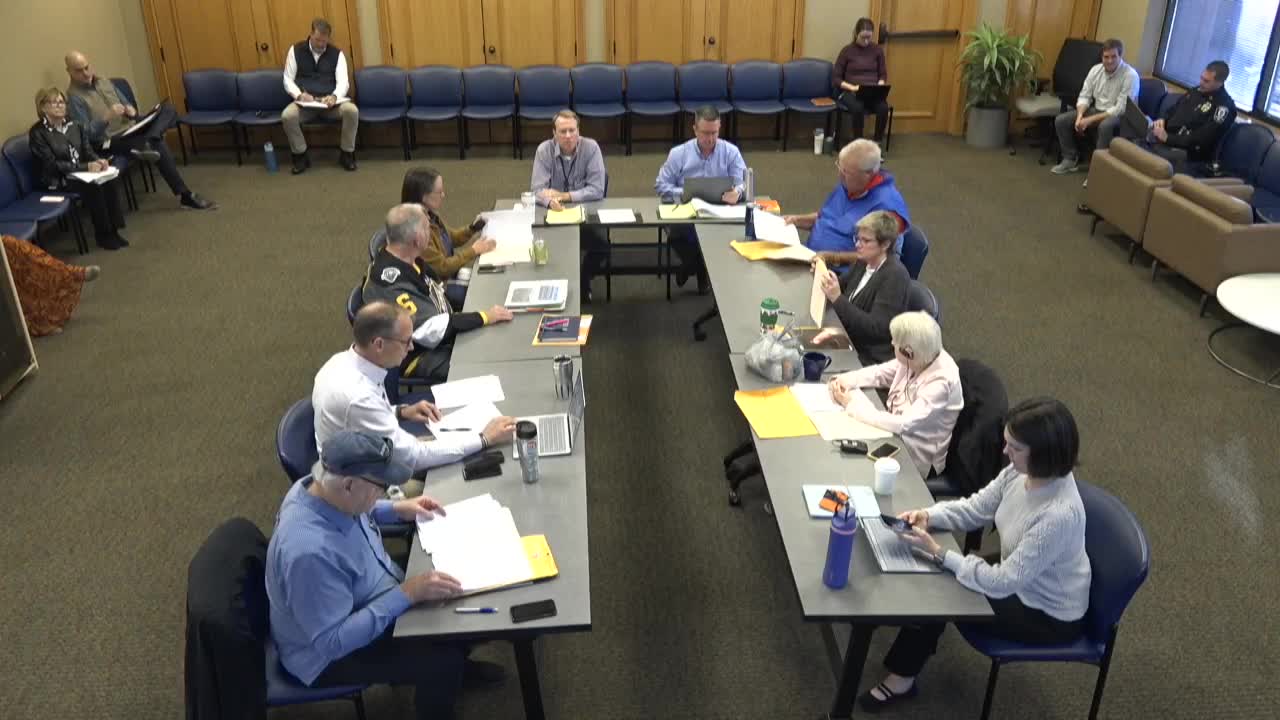Brentwood commissioners discuss e-bike safety, education and possible ordinance changes
Get AI-powered insights, summaries, and transcripts
Subscribe
Summary
City staff, police and BikeWalk Brentwood outlined crash data, Tennessee rules for e-bikes and early recommendations emphasizing education, targeted enforcement and limited regulatory changes for shared paths.
City staff briefed Brentwood commissioners on recent local e-bike incidents and on the legal framework for electric bicycles in Tennessee, and commissioners and staff discussed education, enforcement and possible ordinance cleanups to address safety on sidewalks, multiuse paths and near schools.
City staff opened the discussion saying, “we show 7 e bike related crashes, juveniles between 7 and 15 years old, from August 24 to September,” and described injuries that included abrasions, lacerations, head injuries and broken wrists. Staff and members of BikeWalk Brentwood said the group is continuing to gather input and working with Williamson County Schools on safety around campuses.
BikeWalk Brentwood’s early recommendations — relayed by staff during the meeting — would allow class 1 and 2 e-bikes and e-scooters (both capped at 20 mph) on public paved paths while considering banning class 3 e-bikes (pedal-assist up to 28 mph) from trails. The group also suggested a 15 mph advisory speed on multiuse paths, pedestrian-priority zones near playgrounds and trailheads, and an education-and-signage program paired with occasional patrols.
Why it matters: commissioners said they want to encourage nonautomobile travel while reducing conflicts and injuries. Several speakers emphasized that education will be the first step, because many enforcement options are difficult or resource intensive to sustain. City staff proposed coordinating a public-education campaign with schools, Williamson County and neighboring cities, and suggested pilot monitoring to measure whether outreach reduces incidents or complaints.
Police said enforcement is already taking place but has limits. Chief Colvin (Police Chief) told the commission, “the state says we shall issue a warning on the first helmet violation,” and described relying on warnings and parent notification for juvenile cases; he said more serious vehicle-like violations (for example, an electric vehicle without pedals traveling at high speed) are treated as motor-vehicle enforcement. The department also noted that juvenile citations generally proceed to juvenile court and that staff can enforce traffic rules such as stop-sign violations when observed.
Staff and commissioners discussed technical and enforcement challenges: e-bikes can be quiet and visually similar to conventional bicycles; distinguishing class 1/2/3 from a distance is often difficult; and some vehicles seen locally resemble off-highway electric dirt bikes, which are not legal on roads or paths unless licensed and insured. Staff pointed out that certain paths lie alongside state routes and that any local regulation affecting those corridors may require coordination with the Tennessee Department of Transportation (TDOT).
Next steps discussed included: producing educational materials and signage, coordinating an e-bike safety public-service announcement/video contest with schools, asking local principals to provide counts of bikes/e-bikes at school lots as baseline data, and returning to the commission with draft ordinance language only if commissioners want regulatory changes beyond education. Several commissioners emphasized a policy posture of encouraging safe micromobility rather than discouraging it outright.
Speakers quoted in this article are members of the meeting record and include city staff who presented the brief, BikeWalk Brentwood representative Chad Grouts, Chief Colvin and multiple commissioners and staff who asked questions and proposed next steps. The commission asked staff to collect additional information and return with recommendations after further consultation with schools, BikeWalk Brentwood and neighboring jurisdictions.
